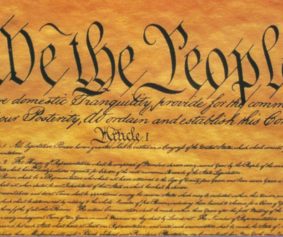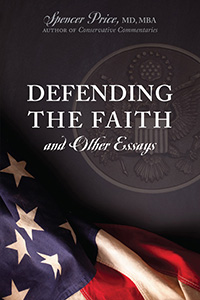The Two Great Failures Of The Legislative Branch
Monday, December 19th, 2016 @ 12:00PM
In a supreme act of both insight and foresight, America’s Founding Fathers established the greatest system of government the world has ever known – bar none. From its most humble beginnings, our American republic has become what President Reagan famously called a “shining city on a hill,” and is considered the benchmark of self-government the world over. The sometimes delicate, sometimes rugged system of checks and balances they created has withstood countless challenges from economic catastrophes to social upheavals to presidential assassinations to world wars and, rather than being diminished, has each time emerged stronger.
Nevertheless, in spite of our government’s obvious strengths, each branch possesses certain flaws that reduce its overall effectiveness. Of the three branches of our republican system of government – legislative, executive, and judicial – it is the legislature that suffers the greatest of these flaws. In fact, at least two such flaws – the lack of term limits for its members and the ability to attach myriad unrelated pieces of legislation to important bills – are so profound they actually constitute failures of the branch itself.
Though he was beloved by millions of Americans, elected officials saw President Roosevelt’s repeated election to the presidency (he was elected four times, dying in office shortly after beginning his fourth term) as a threat to democracy itself. As a result, the 22nd Amendment to the Constitution, ratified February 27, 1951, limited to two the number of terms any person may serve as president. Curiously, these same legislators (and most legislators since) failed to apply the same logic to their own offices.
Congress and the many state legislatures across America are filled with people who’ve served multiple terms – some for 20 or 30 years or even longer. This is actually anti-democratic on at least two levels. First, the longer these people serve, the less likely other qualified candidates are to run against them. The result is a diminishment of democracy itself as voters ultimately experience less choice in government. This situation serves well the elected official, but not the electorate. Democracy is further damaged by the tremendous influence long-serving politicians accumulate through relationships with various individuals and special interest groups developed during their tenure. The old saying, “Power corrupts and absolute power corrupts absolutely,” applies in these situations as such influence often leaves politicians unaccountable to the voters.
Otto von Bismarck is attributed (possibly erroneously) with the saying, “Laws are like sausages, it is better not to see them being made.” Whether the German statesman actually made that famous quote or not, the message is clear – legislating is a dirty business. However, it isn’t the act of debating the merits of a particular piece of legislation that is so dirty but, rather, the back room deals, the whispers in the hallways, the winks and the nods that are so offensive to the notion of representative democracy – a.k.a., a republic. It is these seedy, underhanded dealings, which many elected officials consider a matter of course, that are an affront to American voters who put their faith in the electoral process and representative government. These acts are, in fact, anathema to “government of the people, by the people, for the people.”
A by-product of long-serving politicians is the strangle hold that certain of these people have on the chairmanships of important legislative committees such as appropriations. No single person should hold these seats year after year after year. The result is a concentration of power that leaves other legislators (and, therefore, other regions of the country) beholden to the whims and wishes of the chairman.
Even worse, however, than the unfair concentration of power and influence resulting from the lack of term limits is the utter catastrophe of representative government that stems from the legislature’s ability to attach completely unrelated provisions to important pieces of legislation. In fact, this legislative tactic constitutes the greatest single weakness of the entire legislative process in that, rather than risk failure of important legislation, legislators will accept nearly any attachment regardless of how esoteric or irrelevant in an effort to gain passage of the larger bill. Through this means, representatives and senators succeed in funding countless pork barrel projects designed to assure their re-election. And, of course, it’s all at taxpayer expense.
Instituting term limits and curtailing the attachment of irrelevant legislation to important bills in the House and Senate would do much to restore faith in our system of government by enhancing its equitableness and cost effectiveness. However, regrettably for the American electorate, legislators benefit far too much to correct these two great failures of the legislative branch.
Posted by Spencer Price
Categories: Latest Columns




